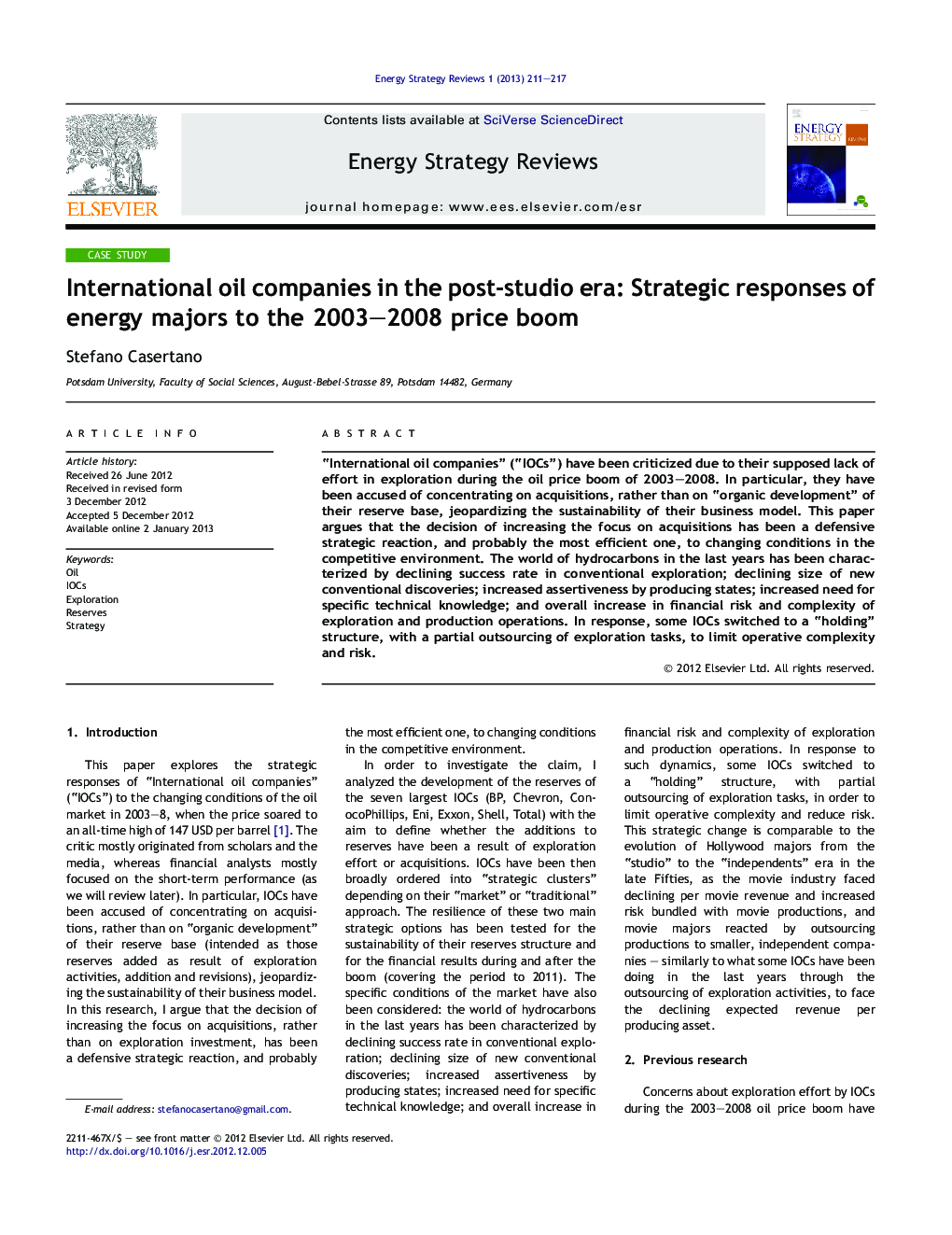| Article ID | Journal | Published Year | Pages | File Type |
|---|---|---|---|---|
| 1029836 | Energy Strategy Reviews | 2013 | 7 Pages |
“International oil companies” (“IOCs”) have been criticized due to their supposed lack of effort in exploration during the oil price boom of 2003–2008. In particular, they have been accused of concentrating on acquisitions, rather than on “organic development” of their reserve base, jeopardizing the sustainability of their business model. This paper argues that the decision of increasing the focus on acquisitions has been a defensive strategic reaction, and probably the most efficient one, to changing conditions in the competitive environment. The world of hydrocarbons in the last years has been characterized by declining success rate in conventional exploration; declining size of new conventional discoveries; increased assertiveness by producing states; increased need for specific technical knowledge; and overall increase in financial risk and complexity of exploration and production operations. In response, some IOCs switched to a “holding” structure, with a partial outsourcing of exploration tasks, to limit operative complexity and risk.
► International oil companies have been criticized for reduced exploration efforts in 2003–2008. ► Some companies (ENI, Conoco, Chevron) leveraged an “assets acquisition” strategy. ► This option has been a strategic reaction to changing industry conditions. ► Some oil companies are acting like “holdings” purchasing and managing numerous smaller assets. ► Leveraging asset purchase and sale improves financial performance during price booms.
